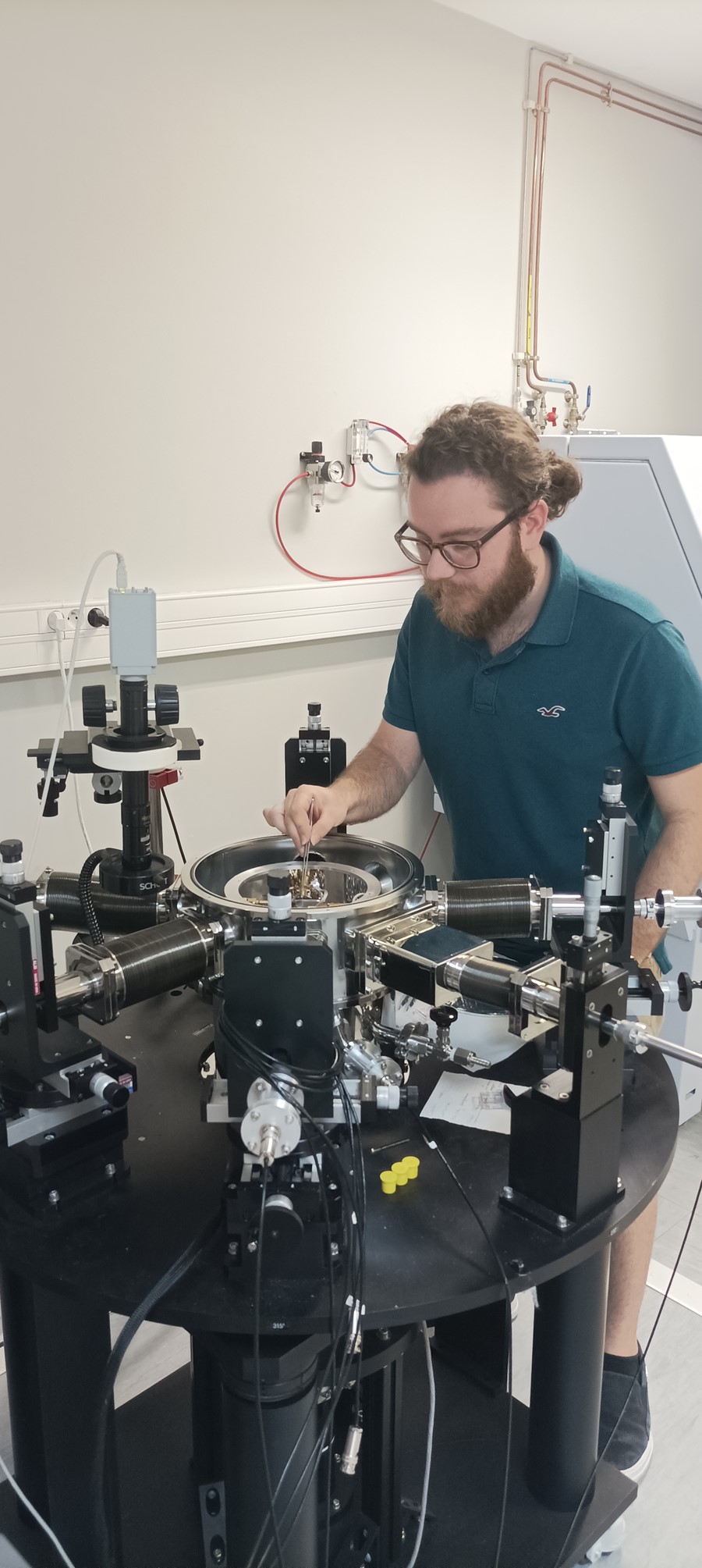Graphene Flagship student receives IUPAC-Solvay Award for Young Chemists
Graphene Flagship Ph.D. students and postdoctoral researchers benefit from a vast network of academic and industrial experts, different schools of thought and interdisciplinary expertise. This is a winning recipe for creative innovation, bringing up employment opportunities and networking possibilities across Europe.
Stefano Ippolito, a recent Ph.D. graduate from the Graphene Flagship Partner University of Strasbourg in France, has received one of the five 2022 IUPAC-Solvay International Awards For Young Chemists, awarded for the best Ph.D. theses in the chemical sciences worldwide.
Ippolito developed an innovative and universal molecular strategy to boost the electrical performance of transition metal dichalcogenide (TMD)-based devices, in a joint collaborative effort with researchers of three Graphene Flagship Partners: University of Strasbourg, Trinity College Dublin (Ireland), and University of Cambridge (UK). During his Ph.D., Ippolito focused on defect engineering strategies via molecular chemistry. In his leading work, he targeted the simultaneous healing of inherent sulfur vacancies and the covalent bridging of adjacent TMD flakes, thereby enhancing the overall charge transport and leading to superior device performance. These findings can contribute to the next generation of opto-electronic devices and are relevant for several Graphene Flagship Work Packages, such as those related to Enabling Materials, Flexible Electronics, Wafer-Scale Integration and Functional Foams and Coatings.
“This brilliant outcome is the fruit of a three-year research project, the core of my Ph.D. program. Such challenging and fascinating work required the use of numerous multiscale characterization techniques, which significantly enriched my knowledge and professional skills. I enjoyed the chance to be the driver of an outstanding international collaboration between different Graphene Flagship Partners, which allowed me to enhance my teamwork and communication abilities,” says Ippolito.
“One of the key prerequisites of the Graphene Flagship is to provide outstanding science and technology training to promising young researchers, thereby spreading excellence across disciplines and generations and ultimately promoting the emergence of a new cohort of exceptional scientists as future world leaders in layered materials and, more broadly, in nanoscience and nanotechnology,” says Prof. Paolo Samori, Ippolito’s Ph.D. supervisor.
Reference
Ippolito, Stefano, et al. "Covalently interconnected transition metal dichalcogenide networks via defect engineering for high-performance electronic devices." Nature Nanotechnology 16.5 (2021): 592-598. https://www.nature.com/articles/s41565-021-00857-9

Stefano Ippolito, a recent Ph.D. graduate from Graphene Flagship Partner the University of Strasbourg in France.

Stefano Ippolito focused on defect engineering strategies via molecular chemistry.




